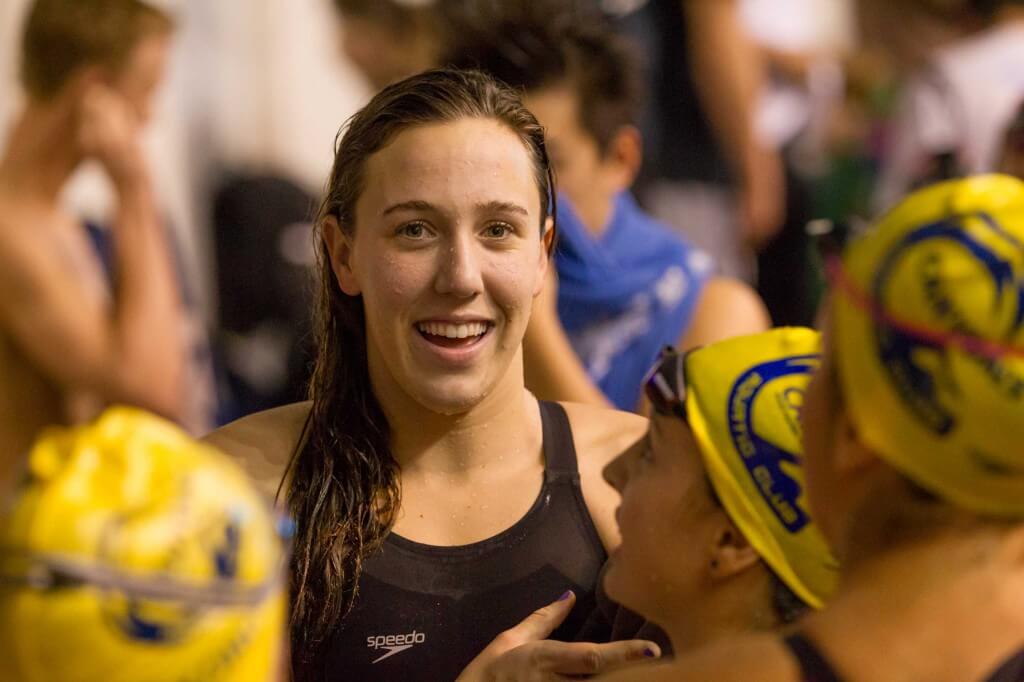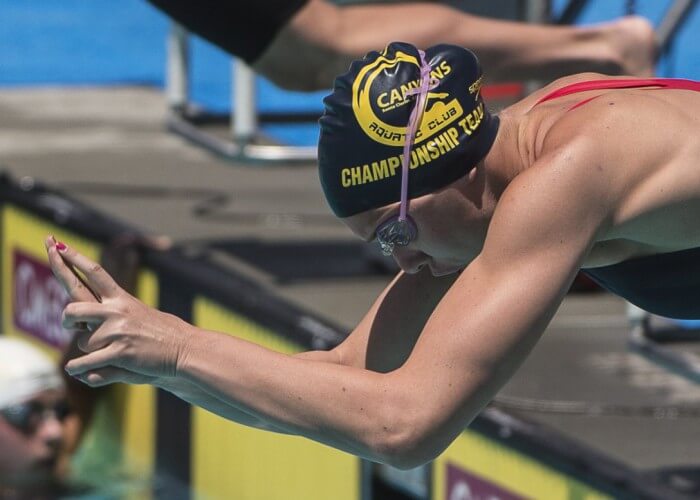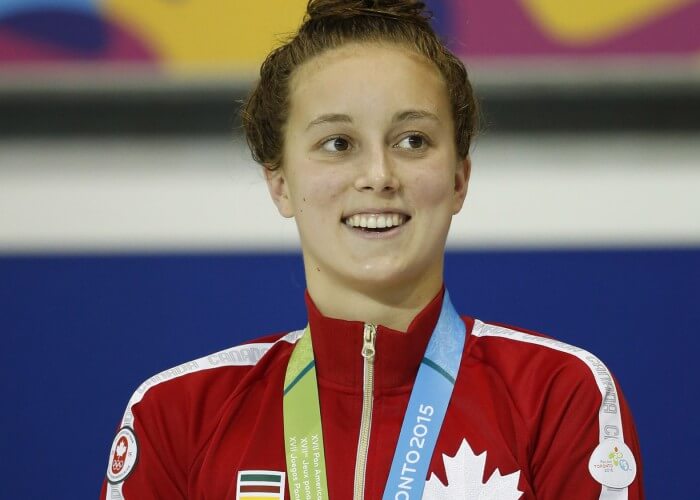The Pros and Cons of Deferring from College

By Justine Ress, Swimming World Intern
The Rio Olympic Games begin in 253 days and that means it’s officially crunch time. During an Olympic year way too many swim meets turn long course (am I right?) and swimmers get that one last jolt of motivation to put in some hard work before trials. The year before the games is a critical time for training. So much so, that several elite swimmers have chosen to defer from collegiate swimming in order to prepare for Olympic Trials.
Many elite swimmers from Katie Ledecky to Missy Franklin have made major plans for this year. Some have chosen to red-shirt to avoid the hectic schedule of college swimming while others have withdrawn from college altogether to make swimming their sole focus.
By holding off on college these athletes can make swimming their top priority without much conflict. They don’t have to worry about conference meets or the schoolwork that comes with being a student-athlete.
I wanted to find out how this has been going for some of those swimmers. Is the extra time helpful? What else do these swimmers do besides swim? Are there any downfalls to skipping out on college swimming? Basically, has this decision been worth it so far?
Abbey Weitzeil
I reached out to superstar sprint freestyler, Abbey Weitzeil, who committed to swim for the University of California, Berkeley but deferred her enrollment one year to prepare for trials. I also spoke with Canadian phenom, Emily Overholt. While she does train at the University of British Columbia, she also chose to defer her enrollment for a year.
Weitzeil still trains with her club team, Canyons Aquatic Club under Coach Coley Stickels. Her current training plan seems to work pretty well so why switch it up? I asked Weitzeil if her decision has proven worth it thus far.
“I feel like it has impacted my swimming in the most positive way,” she said. “I don’t have many distractions and we have been able to try a lot of new things in and out of training. I feel the best that I ever have in the water and I have been seeing great improvements.”
Instead of focusing on any negatives to training this year, Weitzeil takes a very positive approach to the situation. She realizes the opportunity to swim in college could happen any time. However, the chance to swim in the Olympics only comes around every four years.
Admittedly, she said staying home instead of going to college was tough at first. But after a few months of great training, she has gotten the hang of it.
And while Weitzeil couldn’t name too many cons to dedicating this year to swimming, she came up with a few pros. For example, she has time to do activities outside the pool that she enjoys.
“I do yoga sometimes to also help with my training, but it’s something different that I really enjoy. I also give swim lessons and coach, so I am always around the pool you could say. To give my mind a little break from training I like to do art such as drawing or painting. And I enjoy the occasional surf that I recently got into. I just try and find things to keep my days interesting since I am not in school,” Weitzeil said.
Emily Overholt
Overholt has been having a similar, positive experience this year just like Weitzeil. Her training is better than ever, she has plenty of time to rest between workouts and she even moved into her own apartment.
Overholt has a great training group and swims for coaches Tom Johnson and Joszef Nagy at the High Performance Centre. Some of her training partners include Olympians, Tera Van Beilen and Martha McCabe.
“I joined this group last year and was really happy with how the program worked for me so I plan on staying here for the foreseeable future,” Overholt said.
Not only do these ladies have more time for recovery and training, they also have more time for competing.
Overholt said, “ I have a lot more freedom in my schedule so I’ve been able to travel to meets and training camps without worrying about missing school.”
While most of this gap year has positively affected these two, Overholt did admit that deferring a year does have one negative.
“When you don’t have school to distract you from training, it can be challenging mentally because swimming is your only focus and there is some stress that comes with that, but it’s definitely manageable if you have hobbies away from the pool.”
And even with that challenge of deferring for a year, Overholt still recommends a gap year to any high schoolers who may be considering this option. She said that even though putting off college for a year might seem like a big deal, the year flies by.
It seems that this idea of deferring from college for one year just might catch on. With the way Overholt and Weitziel have been swimming, they must be doing something right.





